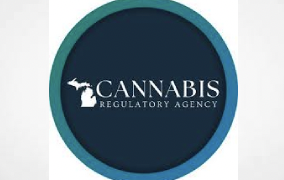Building a market on unfolding regulations is as vulnerable as it is exciting. Massive potential can be side-swiped by unexpected regulatory movements, or seized upon by playing close attention to national and political mood music. The trickle-down effect of this uncertainty should impact how cannabis companies build their teams, their strategies and how and when they raise money.
There can be multiple truths at play, which further complicates things. Right now Europe is heading into one of the most exciting periods of reform as recreational pilots get underway and further legalisation is expected – but it is also a difficult time to raise money, as competition for funding has grown and punchy valuations aren’t loosening investors’ purse strings.
For now the European sector continues to ride these ups and downs, as markets and regulators alike try to make sense of an evolving future.
 In brief: Italian cannabis campaigners suffered a major setback this month when a proposed referendum to decriminalise cannabis cultivation was rejected by the Supreme Court. The proposal, which gathered support from over 630,000 signatories, was deemed inadmissible on the basis that it would ‘violate multiple international obligations’.
In brief: Italian cannabis campaigners suffered a major setback this month when a proposed referendum to decriminalise cannabis cultivation was rejected by the Supreme Court. The proposal, which gathered support from over 630,000 signatories, was deemed inadmissible on the basis that it would ‘violate multiple international obligations’. Wide scope: The referendum proposal was unique in that it did not mention cannabis specifically, but instead would have blanket decriminalized ‘cultivation’ of all narcotics.
Wide scope: The referendum proposal was unique in that it did not mention cannabis specifically, but instead would have blanket decriminalized ‘cultivation’ of all narcotics. Narrow applications: Supporters argued that the proposal would continue to ban all other activities such as drug manufacturing, processing and supply – effectively limiting reform to cannabis cultivation for personal use while preventing further processing or sale of any cannabis, coca, opium poppy or psilocybin mushrooms.
Narrow applications: Supporters argued that the proposal would continue to ban all other activities such as drug manufacturing, processing and supply – effectively limiting reform to cannabis cultivation for personal use while preventing further processing or sale of any cannabis, coca, opium poppy or psilocybin mushrooms. Rejected: However, the Supreme Court argued the proposal went beyond the permitted limited scope of Italian referendums, because it would conflict with Italy’s obligations under UN drug treaties.
Rejected: However, the Supreme Court argued the proposal went beyond the permitted limited scope of Italian referendums, because it would conflict with Italy’s obligations under UN drug treaties. What next: While activists argue that the Court’s decision was based on an incorrect understanding of Italian and international law, the decision puts the pathway for cannabis reform back into the (less-likely) hands of legislators rather than the public.
What next: While activists argue that the Court’s decision was based on an incorrect understanding of Italian and international law, the decision puts the pathway for cannabis reform back into the (less-likely) hands of legislators rather than the public.
The start of medical cannabis in Spain?
 In Brief: Taskforce proceedings on medical cannabis reform in Spain kicked off this month. The country currently has no formal patient access for medical cannabis, despite allowing companies to cultivate for export markets, and a vast network of grey-market cannabis social clubs.
In Brief: Taskforce proceedings on medical cannabis reform in Spain kicked off this month. The country currently has no formal patient access for medical cannabis, despite allowing companies to cultivate for export markets, and a vast network of grey-market cannabis social clubs.  Summer goals: Formed in October, the subcommittee of the Health and Consumer Affairs Commission will hear from patient stakeholders, experts and other governments in a series of public hearings over the coming weeks. Work will culminate in recommendations to the government by June, with campaigners hoping for change in medical cannabis laws by the end of summer.
Summer goals: Formed in October, the subcommittee of the Health and Consumer Affairs Commission will hear from patient stakeholders, experts and other governments in a series of public hearings over the coming weeks. Work will culminate in recommendations to the government by June, with campaigners hoping for change in medical cannabis laws by the end of summer. Coverage for all? The Socialist PSOE, Spain’s largest party and part of the ruling coalition, advocates for a legal framework for medical cannabis on prescription through the national health service (SNS) – raising the prospect of introducing state coverage for medical cannabis in the country of 47 million.
Coverage for all? The Socialist PSOE, Spain’s largest party and part of the ruling coalition, advocates for a legal framework for medical cannabis on prescription through the national health service (SNS) – raising the prospect of introducing state coverage for medical cannabis in the country of 47 million.
UK drug laws under scrutiny
 In Brief: Last but not least, the UK government has announced a wide-ranging inquiry to examine illegal drug use and its effect on society, including whether current drugs laws such as the Misuse of Drugs Act 1971 and the Psychoactive Substances Act 2016 are fit for purpose.
In Brief: Last but not least, the UK government has announced a wide-ranging inquiry to examine illegal drug use and its effect on society, including whether current drugs laws such as the Misuse of Drugs Act 1971 and the Psychoactive Substances Act 2016 are fit for purpose. Hard Questions: Questions that the Home Affairs Committee seek to answer include: Is current UK drug policy effective in dealing with drug use, addiction, drug-related deaths or crime? What UK and international policies have been shown effective in reducing drug use and harms? Does UK drug policy need reform, and if so to what extent is this compatible with international drug treaty obligations?
Hard Questions: Questions that the Home Affairs Committee seek to answer include: Is current UK drug policy effective in dealing with drug use, addiction, drug-related deaths or crime? What UK and international policies have been shown effective in reducing drug use and harms? Does UK drug policy need reform, and if so to what extent is this compatible with international drug treaty obligations? Get Involved: Interested parties are invited to submit evidence to the inquiry by March 24th
Get Involved: Interested parties are invited to submit evidence to the inquiry by March 24th
This inquiry is significant because unlike many reviews before it, there is scope to actually challenge UK drug laws and recommend reform. Questions about compatibility with international law suggest that a range of options are up for discussion, including decriminalization. Although findings aren’t binding on the government, the inquiry has real potential to shine a light on UK drug policy and its current shortcomings. – CB
CBD relief as applications are processed
 In Brief: After years of delays and uncertainty, the EU bottleneck on novel food applications for hemp CBD products is finally moving.
In Brief: After years of delays and uncertainty, the EU bottleneck on novel food applications for hemp CBD products is finally moving. Plant power: Several operators, including PharmaHemp, CBDepot, Linnea and HemPoland have had their novel food applications for hemp-derived CBD validated, which will now undergo safety evaluation.
Plant power: Several operators, including PharmaHemp, CBDepot, Linnea and HemPoland have had their novel food applications for hemp-derived CBD validated, which will now undergo safety evaluation. Holdups: Previously, only synthetic CBD novel food applications were progressing at the EU level – with hemp-based CBD applications stuck, sometimes for years, awaiting European Commission go-ahead. This led to concerns that the Commission was attempting to block applications for plant-based CBD, despite a December 2020 ruling from the European Court of Justice that hemp CBD should not be considered a narcotic.
Holdups: Previously, only synthetic CBD novel food applications were progressing at the EU level – with hemp-based CBD applications stuck, sometimes for years, awaiting European Commission go-ahead. This led to concerns that the Commission was attempting to block applications for plant-based CBD, despite a December 2020 ruling from the European Court of Justice that hemp CBD should not be considered a narcotic. The new challenge: With applications now cleared for review, the focus turns to whether applicants can provide robust enough data to meet regulatory approval.
The new challenge: With applications now cleared for review, the focus turns to whether applicants can provide robust enough data to meet regulatory approval. Back in blighty: Meanwhile, the UK has added a handful of new names to the ‘public list’ of CBD brands that can remain on sale while their novel food applications are processed. Suppliers with validated applications now include Cannabis Pharma, Chanelle McCoy, Curaleaf International, Brains Bioceuticals, and Bod Australia.
Back in blighty: Meanwhile, the UK has added a handful of new names to the ‘public list’ of CBD brands that can remain on sale while their novel food applications are processed. Suppliers with validated applications now include Cannabis Pharma, Chanelle McCoy, Curaleaf International, Brains Bioceuticals, and Bod Australia. Future threat: Those who fail to make the UK ‘final’ list risk a product clampdown in the coming months, with enforcement of non-compliant CBD products likely to ramp up.
Future threat: Those who fail to make the UK ‘final’ list risk a product clampdown in the coming months, with enforcement of non-compliant CBD products likely to ramp up.

















